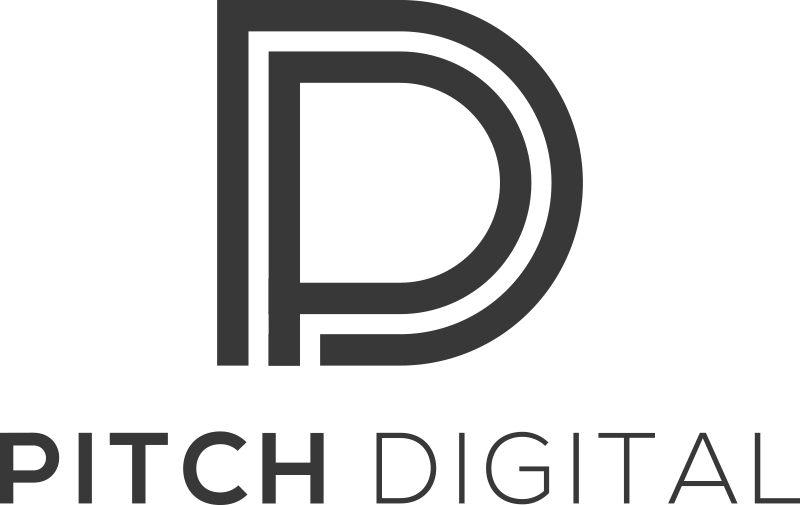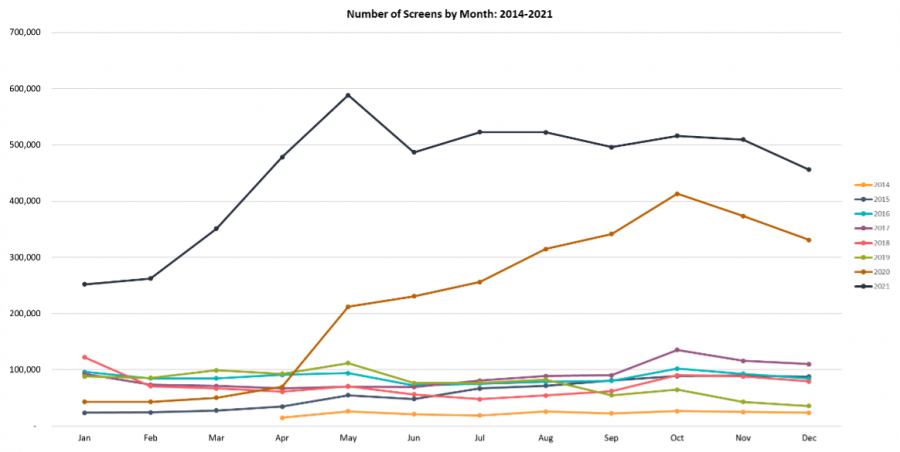Everyone knows that the internet has become essential in our daily lives. From finding the best restaurant to sharing photos with relatives, the information age has radically changed how people consume and distribute information. The internet also revolutionized how we search for mental health care.
Mental Health America reports that the number of Americans completing online mental health screenings in 2021 soared almost 500% from 2019 and increased 103% since 2020.
According to Johns Hopkins University, one in four Americans suffer from a diagnosable mental health condition. After the COVID-19 pandemic, rates of depression and anxiety jumped 25 percent globally, according to the World Health Organization. Tens, if not hundreds, of millions of people need help, and many providers are not effectively reaching the people needing care.
With the increased need for care, the need to have a robust digital presence has become paramount.
But with any form of outreach, the people you choose to market your services matter. The behavioral health industry needs more reputable marketers who see the human value, not just the economic, of the people we try to persuade.
People needing mental health care are more than leads; healthcare marketing professionals must be more than lead aggregators. With the right team, you can stabilize and increase your census without losing sight of the mission: providing care to those in need.
Rehab Marketing and Behavioral Health
A successful and cost-effective rehab marketing strategy diversifies your efforts, so you are no longer overly reliant on referral business. It can be tempting to assume that people seeking care will find you when help is needed, but this assumption is outdated. Almost all behavioral health providers have a digital presence.
However, many still rely on traditional forms of marketing and advertising to reach their audience–mailers and cookie-cutter business development strategies. Understandably, many healthcare companies have reservations about the digital realm. However, many negative experiences with marketers result from a lack of visibility into performance. That need not be the case.

The plethora of available digital marketing channels provides granular detail on performance. Your marketing team needs to be transparent about their work and show an easily discernible and predictable ROI. Digital marketing removes the guesswork, and you no longer have to wonder if and how many eyes see your billboard or if the television ads reach the right audience.
PPC Advertising
One of the most transparent and trackable forms of online advertising is known as pay-per-click or PPC.
Clicks, impressions, and conversions are visible in real-time, which allows agility and flexibility to control costs and meet your cost-per-acquisition targets. Who you choose to run your PPC campaign matters. Many behavioral health organizations with a negative experience with rehab marketing specialists point to the need for more success with paid digital advertising.
PPC is highly competitive and requires expert attention to detail. It can be technical and also requires a touch of art. But it doesn’t have to be intimidating. With the right people, you can show results, hone your compassionate messaging, and promote your mission to those you want to serve.
Healthcare SEO Services
Search Engine Optimization (SEO) is one of the most important pillars of an effective marketing strategy. Simply put, SEO is the optimization of your website to ensure it ranks highly for search terms your target audience uses.
It’s an essential arm of digital marketing, as 71% of searchers click on Google’s first page of results. Combined with other tools, SEO is measurable and provides visibility into lead sources.
Another aspect of SEO involves business or local listings–think of the list of businesses that appear when you search for a pizza shop near you. Creating, maintaining, and updating business listings regularly helps your page, listings, and site rank above your competitors. SEO involves several other elements, but we won’t take you too deep into the weeds–that’s what we marketers are for!
All of Google’s offerings are important, and the sum of Google’s parts is important, but it’s just the starting point. As you’ve seen in your feeds, niche communities exist across the internet and web-based platforms. The “best” place to reach your audience depends on the people you are trying to help, your goals, and your budget.
Trackable ROI = Transparency
While everything discussed above provides insights and metrics on your performance (and that of your marketing team), additional tools can provide even more visibility. While quantitative data is easy to come by, qualitative data can be even more so.
Google Analytics will show you how many people visited your website, how many times they visited, and how many took action, such as making a phone call or completing an online form.
The next question rehab marketers need to answer is: Were they the right people?
Imagine this scenario: your organization, let’s call it Tucson Valley Mental Health, spent thousands of dollars on Google Ads, and your marketing team consistently demonstrated that call volume is increasing. But you haven’t seen an increase in admissions. Where’s the disconnect?
Let’s also pretend that Tucson Valley Apartments, Tucson Valley Family Practice, and Tucson Valley Dental also exist in your area. You could receive many calls for these businesses and just a few for yours. The only way to have visibility is also to track qualitative data.
It is the responsibility of digital marketers to not only increase the number of calls but also increase the number of qualified calls (or whatever your goal is, like website form completions, newsletter sign-ups, etc).
Also in our toolbox are services that provide insight into the equation’s qualitative side. CallRail is a call-tracking (telephony) service that allows your admissions team to track and score calls. It also has the option to record so you can track your admissions team’s performance. Employing the use of customer relationship management software can provide additional insights.
Customer Relationship Management
A Customer Relationship Management (CRM) platform is one of (if not the) most powerful tools to track performance and ROI.
It allows real-time insights into lead quantity and lead quality and tracks their source–the marketing channels. It allows managers and directors to efficiently oversee the performances of both the marketing and admissions teams. CRMs also provide each team insight into the effectiveness of the other, and that also increases accountability and transparency. The added visibility allows both to ensure the other uses the correct language, tone, and empathy in their interactions.

Rehab Marketing Mission and Messaging
As behavioral healthcare organizations navigate the complex landscape of the digital age, it’s imperative to remember the fundamental importance of empathy.
Effective rehab marketing is about more than just generating leads or achieving a high ROI. It’s also about knowing that every lead is a person seeking understanding, support, and hope.
We use lead and ROI because they are standard terms but admittedly cold, sterile, and horrible messaging. They don’t fully capture the humanity of the topic: helping people. Seeing the people behind the lead helps us create compelling and compassionate messaging and allows organizations to build long-lasting relationships.
Let us remember that behind every metric lies a human story, and by leading with the heart, we can build meaningful connections and make a positive impact on those we seek to serve. Maya Angelou once said, “…people will forget what you said, people will forget what you did, but people will never forget how you made them feel.” And all jobs in behavioral health share the same mission: we want to make people feel better.
Transform your rehab marketing into actionable insights and achieve long-term success in the digital landscape.




